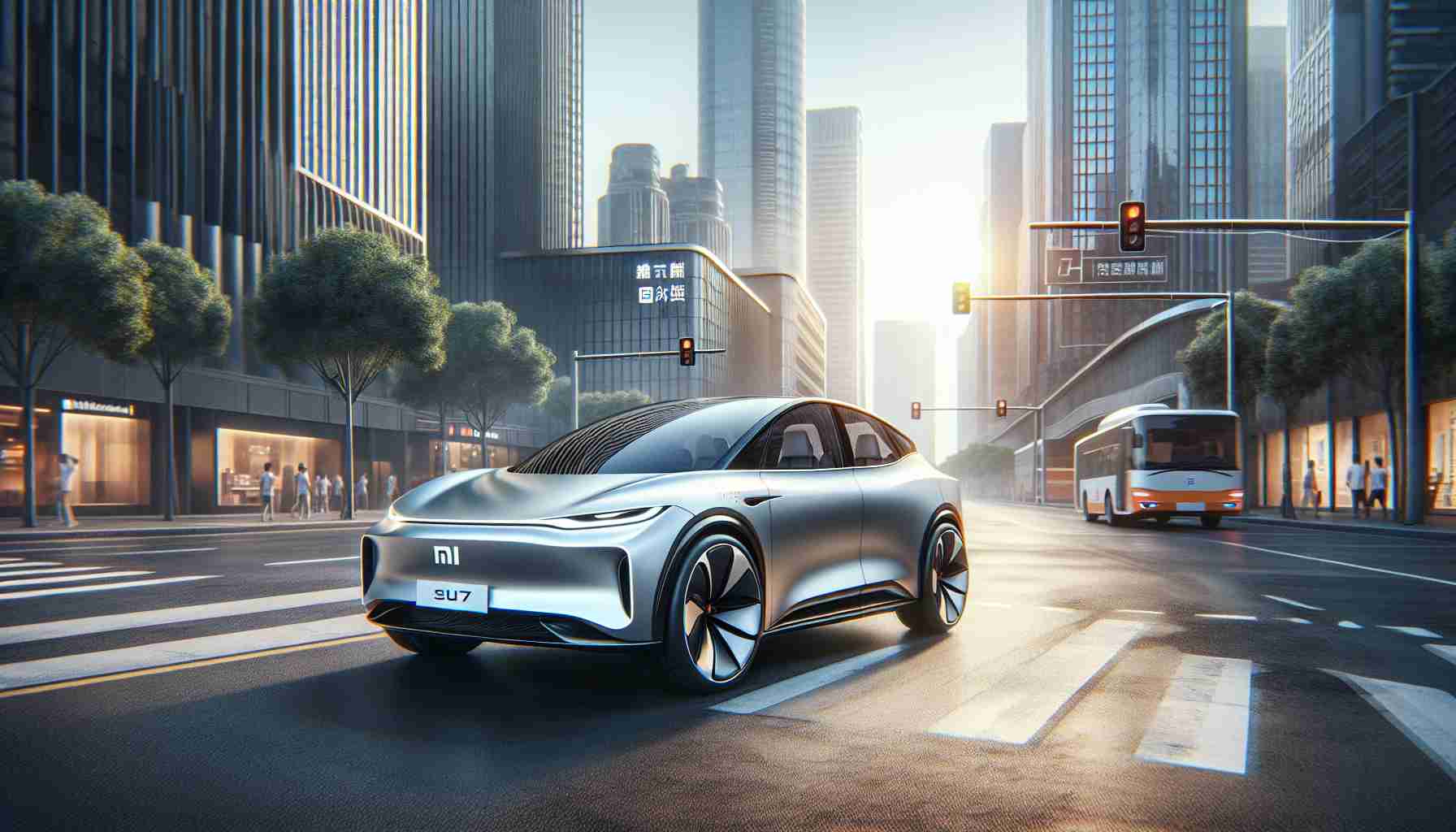Xiaomi Auto Makes a Bold Entry with Its First Electric Car
Xiaomi, widely recognized for its consumer electronics, has recently unveiled an awe-inspiring addition to the electric vehicle (EV) market—the Xiaomi SU7. This innovative all-electric full-size sedan is the company’s foray into the automotive industry, underscoring its versatility beyond smartphones and gadgets. The eminent technological giant presented the vehicle with great enthusiasm in Beijing, proclaiming its commitment to a new venture in the world of green transportation.
Flagship Killer: Xiaomi’s Competitive Edge
In a direct challenge to established luxury electric vehicles such as the Tesla Model S and Porsche Taycan, the Xiaomi SU7 has been labeled a ‘flagship killer.’ It boasts an impressive performance at a price point that significantly undercuts its high-end competitors. The sedan’s variants, which include the SU7, SU7 Pro, and SU7 Max, cater to various consumer preferences, each providing an all-wheel drive and up to 664 horsepower. This has sparked conversations about how Xiaomi’s ambitions could disrupt the current dominators in the EV market, especially Porsche.
Expanding the Model Line-up
Despite the praise, there is speculation about the sustainability of Xiaomi’s automotive venture with only one model. Rumors suggest that the company is not stopping at the sedan; it plans to introduce an electric crossover and a highly affordable EV, potentially outpacing even Tesla.
Xiaomi vs. Porsche: A Digital Designer’s Dream
Interest in Xiaomi’s automotive potential has led to unique digital renditions. One artist, Theottle, imaginatively blended the Xiaomi SU7 with the classic Porsche 911 to craft a concept for a two-door electric coupe. This blend symbolizes the speculative yet feverish excitement for what could be a groundbreaking entry into the sports EV market.
Xiaomi’s strategic move into electric vehicles will certainly stir the pot, as the EV world eagerly watches to see if the tech giant can truly rival the likes of Porsche and Tesla in this electrified race.
To provide further context surrounding Xiaomi’s entry into the electric vehicle market with the SU7 sedan, we can examine several facets of the industry and the potential impact of their new EV. Here are some additional facts, challenges, controversies, and the advantages and disadvantages associated with Xiaomi’s electric vehicle venture:
Global EV Market Growth
The electric vehicle market is experiencing rapid growth globally. Governments around the world are setting ambitious targets to reduce greenhouse gas emissions, and electric vehicles are seen as a key part of achieving these goals. Initiatives such as tax incentives for EV buyers and investments in charging infrastructure are fostering market growth.
Xiaomi’s Brand Recognition and Diversification
Xiaomi is a household name in the consumer electronics sector, particularly in Asia. Its brand recognition could provide a significant advantage as it enters the automotive industry. Moreover, Xiaomi’s diversification into the electric vehicle market is a strategic move that could potentially tap into a new revenue stream and reduce its reliance on the highly competitive smartphone market.
Key Challenges and Controversies
One key challenge for Xiaomi will be establishing itself as a credible automotive manufacturer. Xiaomi will need to prove its competence in areas such as vehicle safety, reliability, and after-sales service, which are vital in the car industry.
Another challenge is the fierce competition from established automotive giants and other tech firms entering the space, such as Apple’s rumored car project. Moreover, the supply chain and production capabilities for EVs can be complex and may present difficulties for a new entrant like Xiaomi.
Advantages and Disadvantages
Advantages:
– Xiaomi’s expertise in technology and software could lead to innovations in the EV sector, such as advanced driver assistance systems and smart connectivity features.
– The company’s aggressive pricing strategy might attract price-sensitive consumers looking for affordable EV options.
– Xiaomi’s established global supply chain for electronics could facilitate the efficient sourcing of materials and components for electric cars.
Disadvantages:
– Entering the automotive industry requires significant capital investment, and there is a risk that the venture may not be profitable.
– Automotive production involves meeting stringent safety and regulatory standards, which Xiaomi has less experience with compared to traditional automakers.
– Building up an automotive brand and customer loyalty in the face of competition from well-established players like Tesla and Porsche will be challenging.
Related Links to Explore:
For those interested in learning more about Xiaomi’s broader ecosystem and consumer electronics lineup, you can visit the company’s official website: Xiaomi Official.
For insight into the electric vehicle market and the growing trends within the industry, you may want to visit the websites of industry-leading electric vehicle manufacturers such as Tesla and Porsche.
It is important to note that the content provided above does not come from the original article and serves to add further insight into the topic of Xiaomi’s dive into the electric vehicle market.
